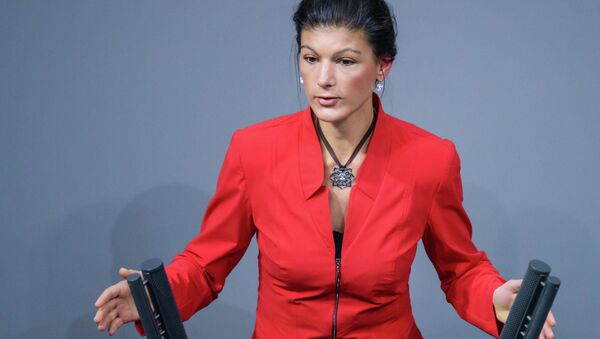“The escalation risks are extremely high,” Wagenknecht said. “There are now 15 countries fighting in Syria, sometimes together, sometimes side by side, sometimes against each other. There is no common strategy,” she added.
According to the politician, the parties involved do not have any consensus regarding their actions. They don’t even have an agreement on the fact that the fight against the Daesh should be of the highest priority. For instance, Turkey has different priorities and maintains ties with jihadists.
“Erdogan has to be put under pressure to finally stop his covert terrorist support and close the Turkish border for the Islamic State,” Wagenknecht said.
At the same time, the German politician stressed that the military intervention plays into the hands of Daesh terrorists, because the airstrikes lead to a large number of civilian casualties, causing hatred and indignation among the local population.
“Germany is involved in a war, the course of which no one can really control,” the German politician stressed.
Since 2014, Daesh militants have seized vast areas in Syria and Iraq, and have declared a caliphate under the rule of Sharia law in territories they control.
After that the US formed a coalition of some 60 nations which has been carrying out airstrikes against the terrorists since September 2014. The mission has not been authorized by the Syrian government or the UN Security Council.



